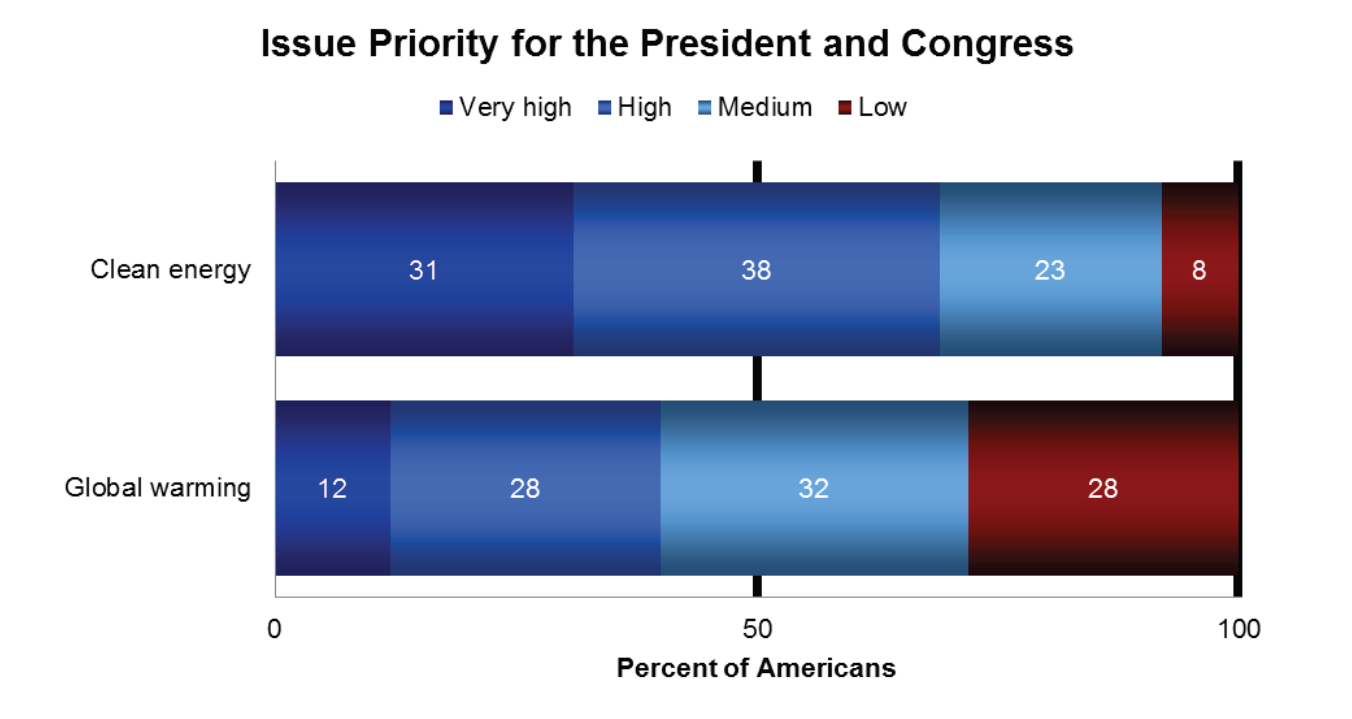On April 26th, the Yale Project on Climate Change Communication and the George Mason University Center for Climate Change Communication released the results of a recent poll, suggesting that “overall, majorities of Americans say that global warming and clean energy should be among the nation’s priorities… and support a variety of climate change and energy policies.”
The survey of 1,008 American adults found that:
- “92 percent of Americans think that developing sources of clean energy should be a very high (31%), high (38%), or medium (23%) priority for the president and Congress.”
- “91 percent of Democrats, 77 percent of Independents, and 70 percent of Republicans think that overall, protecting the environment either improves economic growth and provides new jobs, or has no effect on economic growth or jobs.”
- “65 percent of Americans support an international treaty requiring the U.S. to cut carbon dioxide 90% by the year 2050.”
- “63 percent support requiring utilities to produce at least 20% of their electricity from renewable energy sources, even if household costs increase by $100 a year.”
- “62 percent of Americans say it is more important to protect the environment, even if it reduces economic growth, while 38 percent say economic growth is more important, even if it leads to environmental problems.”
What do findings such as this suggest for U.S. energy policy? Does the national energy policy discourse, as represented in the mainstream media and political communications, reflect these findings?
This is similar to results we have sen here in the Midwest with our survey work. The priorities of the general public do not seem to be in sync with… Read more »